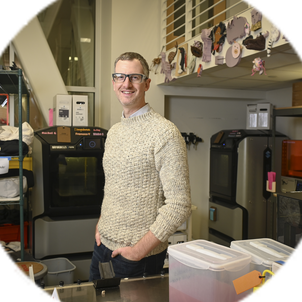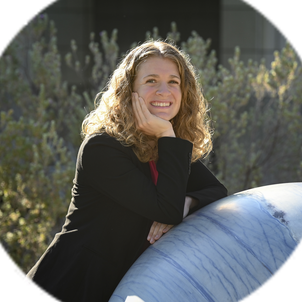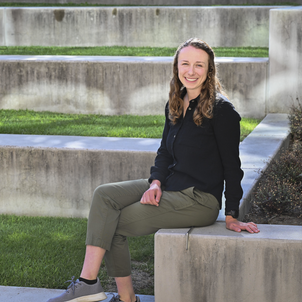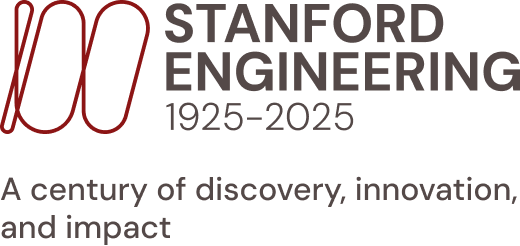I came to Stanford for my master’s in computer science because while I’d done a lot of interesting things as an undergraduate, I didn’t really know what I wanted to do going forward. I’ll be graduating in June, and I can say my time here has really gone by quickly. I work as a course assistant in addition to being a full-time student, and I’ve also tried to be as involved as possible with other activities. It’s a lot, but I feel like I’ve done everything I wanted to do, and I’m really content with my experience here.
I study human-computer interaction (HCI), because I want to understand how to think about people when it comes to developing technology. I’ve taken classes with James Landay, Michael Bernstein, and Christina Wodtke, and they just blew my mind with HCI. We learn about things such as how individuals view technology, how to design for accessibility, and how to determine whether various technologies are beneficial to people.
I’ve spent some of my time during this second year finding and helping develop different communities here at Stanford. I worked with Gabriela Velázquez, the School of Engineering’s associate director of equity and inclusion, to organize the first meetup for Stanford recipients of the GEM Fellowship, which supports graduate students from underrepresented groups in engineering and science. I’m also the social chair of the Black Graduate Student Association, and a graduate student scholar at the Black Community Services Center, which is also called the Black House. I also help run the Stanford-HBCU Exchange Program, which gives undergraduates the chance to study at one of three historically Black institutions – Howard University, Morehouse College, or Spelman College – for a quarter or a year. This means students can attend Stanford but still have that HBCU experience. It’s also an opportunity for HBCU students to come here for a time and engage with Stanford faculty.
The Stanford HBCU Exchange Program is special to me, because as an undergraduate I attended Hampton University in Virginia, another HBCU, and it was both a big pivot and a huge growing experience for me, coming from a school district with very few Black students. HBCUs provide so much culture and tradition. It was a place where I felt I could strive and be myself, and it was so empowering. Seeing more people like me made me realize I really do belong in this field.
After graduation, I’ll be moving to Raleigh, North Carolina, to work as a software engineer at Apple. I’ll be in their Information Systems & Technology Early Career Development Program, which will allow me to rotate through different teams and really figure out how I want to start my career.
Beginning this new chapter of my life, I feel a huge responsibility toward people who have not been represented in this field. Growing up, I had amazing role models, but I didn’t have people close to me in any STEM-related field. It’s now my turn to show the young people coming behind me that we do exist and are meant to be in these spaces.
Related spotlights

Dan Somen

Sonia Martin


